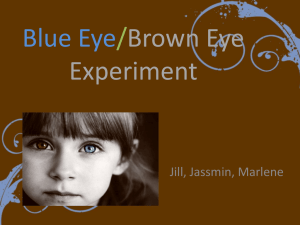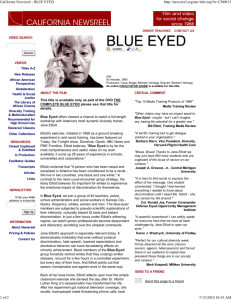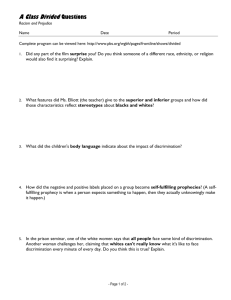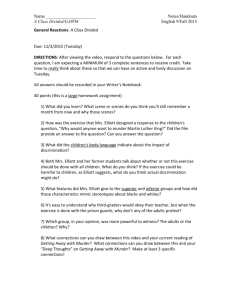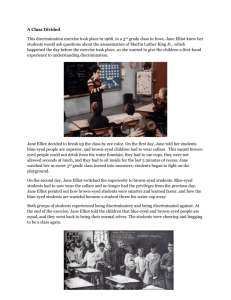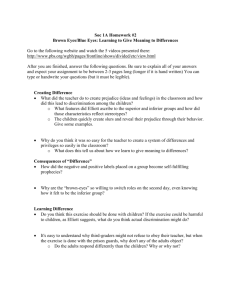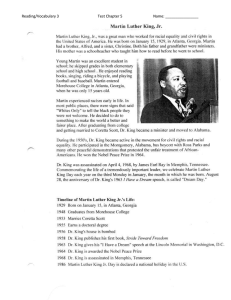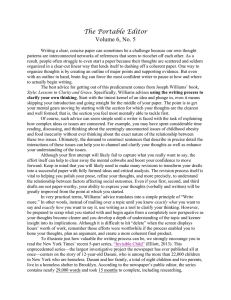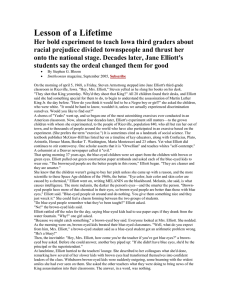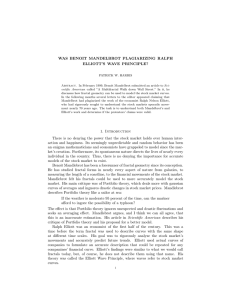Blue Eyed Questions - New Town High School
advertisement
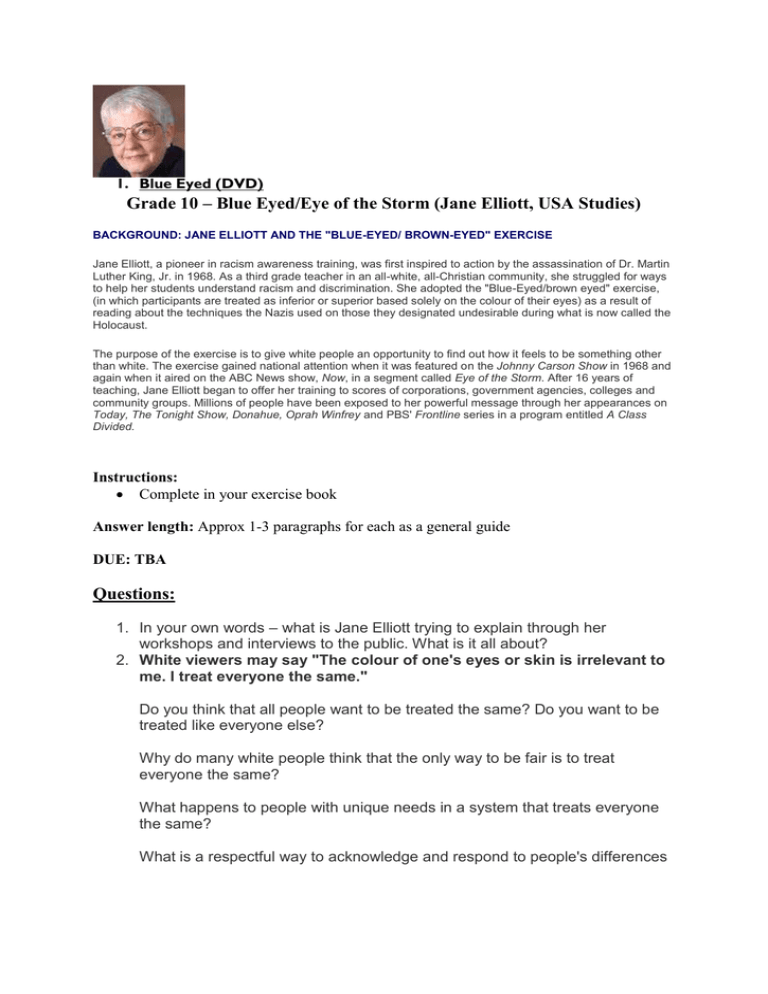
1. Blue Eyed (DVD) Grade 10 – Blue Eyed/Eye of the Storm (Jane Elliott, USA Studies) BACKGROUND: JANE ELLIOTT AND THE "BLUE-EYED/ BROWN-EYED" EXERCISE Jane Elliott, a pioneer in racism awareness training, was first inspired to action by the assassination of Dr. Martin Luther King, Jr. in 1968. As a third grade teacher in an all-white, all-Christian community, she struggled for ways to help her students understand racism and discrimination. She adopted the "Blue-Eyed/brown eyed" exercise, (in which participants are treated as inferior or superior based solely on the colour of their eyes) as a result of reading about the techniques the Nazis used on those they designated undesirable during what is now called the Holocaust. The purpose of the exercise is to give white people an opportunity to find out how it feels to be something other than white. The exercise gained national attention when it was featured on the Johnny Carson Show in 1968 and again when it aired on the ABC News show, Now, in a segment called Eye of the Storm. After 16 years of teaching, Jane Elliott began to offer her training to scores of corporations, government agencies, colleges and community groups. Millions of people have been exposed to her powerful message through her appearances on Today, The Tonight Show, Donahue, Oprah Winfrey and PBS' Frontline series in a program entitled A Class Divided. Instructions: Complete in your exercise book Answer length: Approx 1-3 paragraphs for each as a general guide DUE: TBA Questions: 1. In your own words – what is Jane Elliott trying to explain through her workshops and interviews to the public. What is it all about? 2. White viewers may say "The colour of one's eyes or skin is irrelevant to me. I treat everyone the same." Do you think that all people want to be treated the same? Do you want to be treated like everyone else? Why do many white people think that the only way to be fair is to treat everyone the same? What happens to people with unique needs in a system that treats everyone the same? What is a respectful way to acknowledge and respond to people's differences 3. Would you like to be brought up as a girl? Why or why not? (Look at this in a social context. Consider some of the ideas below when answering.) How do women behave in your groups ? For example, do they "take care" of men by waiting on them? In what ways are women complicit in perpetuating negative or lowered or stereotyped expectations for women? For example, do women undermine each other by being judgmental of other women? What are the costs and benefits to women of conforming to these expectations? What are the costs to the group of ‘boxing’ women into certain behaviours and roles? What role should women/men play in changing sexism in organizations and social groups? For example, if a man consistently cuts off a woman who is speaking, who should point it out and how?
